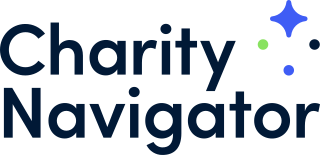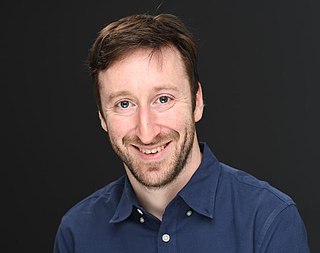A Master of Business Administration is a professional postgraduate degree focused on business administration. The core courses in an MBA program cover various areas of business administration; elective courses may allow further study in a particular area but an MBA is normally intended to be a general program. It originated in the United States in the early 20th century when the country industrialized and companies sought scientific management.

A nonprofit organization (NPO), also known as a nonbusiness entity, nonprofit institution, or simply a nonprofit, is a legal entity organized and operated for a collective, public or social benefit, as opposed to an entity that operates as a business aiming to generate a profit for its owners. A nonprofit organization is subject to the non-distribution constraint: any revenues that exceed expenses must be committed to the organization's purpose, not taken by private parties. Depending on the local laws, charities are regularly organized as non-profits. A host of organizations may be nonprofit, including some political organizations, schools, hospitals, business associations, churches, foundations, social clubs, and consumer cooperatives. Nonprofit entities may seek approval from governments to be tax-exempt, and some may also qualify to receive tax-deductible contributions, but an entity may incorporate as a nonprofit entity without having tax-exempt status.
The Hunger Project (THP), founded in 1977 with the stated goal of ending world hunger in 25 years, is an organization committed to the sustainable end of world hunger. It has ongoing programs in Africa, Asia, and Latin America, where it implements programs aimed at mobilizing rural grassroots communities to achieve sustainable progress in health, education, nutrition, and family income. THP is a 501(c)(3) non-profit charitable organization incorporated in the state of California.
Omidyar Network is a self-styled "philanthropic investment firm," composed of a foundation and an impact investment firm. Established in 2004 by eBay founder Pierre Omidyar and his wife Pam, Omidyar Network has committed over US$1.5 billion to nonprofit organizations and for-profit companies across multiple investment areas. According to the OECD, Omidyar Network's financing for 2019 development increased by 10% to US$58.9 million.
CharityWatch, known until 2012 as the American Institute of Philanthropy, is a 501(c)(3) nonprofit organization in Chicago, created in the United States by Daniel Borochoff in 1992, to provide information about charities' financial efficiency, accountability, governance, and fundraising.

Charity Navigator is a charity assessment organization that evaluates hundreds of thousands of charitable organizations based in the United States, operating as a free 501(c)(3) organization. It provides insights into a nonprofit's financial stability, adherence to best practices for both accountability and transparency, and results reporting. It is the largest and most-utilized evaluator of charities in the United States. It does not accept any advertising or donations from the organizations it evaluates.
A giving circle is a form of participatory philanthropy by a group of individuals who form a voluntary association to donate their money or time. The group then decides how to allocate these resources to charitable organizations or community projects. Groups may also seek to increase their awareness of and engagement with the issues covered by the charity or community project.

The Chronicle of Philanthropy is a magazine and digital platform that covers the nonprofit world of philanthropy. Based in Washington, D.C., it is aimed at charity leaders, foundation executives, fund raisers, and other people involved in philanthropy. The Chronicle of Philanthropy publishes 12 print issues a year as well as daily Web coverage and multiple e-newsletters, including Philanthropy Today.

Kiva Microfunds is a 501(c)(3) non-profit organization headquartered in San Francisco, California. Kiva's mission is "to expand financial access to help underserved communities thrive."

Legatum Limited, also known as Legatum, is a private investment firm, headquartered in Dubai, United Arab Emirates. Legatum is a partnership that uses its own funds to invest globally. The firm also invests in activities to promote entrepreneurship and free enterprise as well as anti-slavery, health and education initiatives.
Candid is an information service specializing in reporting on U.S. nonprofit companies. In 2016, its database provided information on 2.5 million organizations. It is the product of the February 2019 merger of GuideStar with Foundation Center.
Innovations for Poverty Action (IPA) is an American non-profit research and policy organization founded in 2002 by economist Dean Karlan. Since its foundation, IPA has worked with over 400 leading academics to conduct over 900 evaluations in 52 countries. The organization also manages the Poverty Probability Index.

Jessica Erin Jackley is an American entrepreneur who co-founded Kiva and later ProFounder, two organizations that promote development through microloans.

The RGK Center for Philanthropy and Community Service is a research center at University of Texas at Austin located in the Lyndon B. Johnson School of Public Affairs. The teaching and research of the RGK Center are focused in the areas of nonprofit organizations, philanthropy, social entrepreneurship, and volunteerism.
Warner P. Woodworth is a global social entrepreneur and professor emeritus in the Department of Management in the Marriott School of Business at Brigham Young University (BYU). He is a leading advocate of development of microcredit and has been involved in researching as well as developing such programs.

Holden Karnofsky is an American nonprofit executive. He is a co-founder and Director of AI Strategy of the research and grantmaking organization Open Philanthropy. Karnofsky co-founded the charity evaluator GiveWell with Elie Hassenfeld in 2007 and is vice chair of its board of directors.

Stanford Social Innovation Review (SSIR) is a magazine and website that covers cross-sector solutions to global problems. SSIR is written by and for social change leaders from around the world and from all sectors of society—nonprofits, foundations, business, government, and engaged citizens. SSIR's mission is to advance, educate, and inspire the field of social innovation by seeking out, cultivating, and disseminating the best in research- and practice-based knowledge. With print and online articles, webinars, conferences, podcasts, and more, SSIR bridges research, theory, and practice on a wide range of topics, including human rights, impact investing, and nonprofit business models. SSIR is published by the Stanford Center on Philanthropy and Civil Society at Stanford University.
Peter deCourcy Hero was an American foundation and college president. He was also the founder and principal of The Hero Group. He was the grandson of Andrew Hero Jr.
The Nonprofit Marketplace Initiative (NMI) was an initiative of the Effective Philanthropy Group of the Hewlett Foundation launched in 2006. Its closure was announced in the Chronicle of Philanthropy in April 2014.
Esperanza is a Christian-based not-for-profit organization that is devoted to helping poverty-stricken people of the Dominican Republic through finance, education, health, and spiritual programs. It is classified as a 501(c)(3) nonprofit organization in the State of Washington, USA and as a non-governmental organization in the Dominican Republic. Its primary services are centered around its microfinance program, which provides small loans to impoverished families and business owners, to progress economic development and pull communities out of poverty. It was founded in 1995 by former Major League Baseball player Dave Valle and his wife Vicky. Esperanza is headquartered in Santo Domingo, has 10,000 associates in the Dominican Republic and Haiti, has distributed 200,000 loans, supported 200 schools, and provided access to clean water through 50 water projects.








